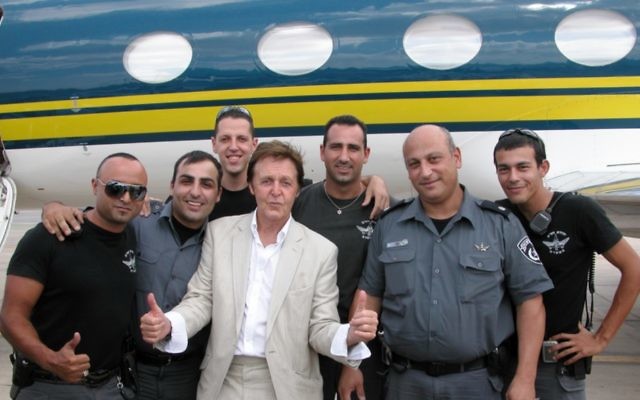A Summer in the Musical Jewish State
Israel continues to cultivate music scene despite cultural regulations of the past.
Israel has historically been home to a robust local music scene informed by globally based artists. As a result, Israel is a prime destination for international touring acts.
Summer 2017 has been no exception.
Despite efforts by certain high-profile artists associated with the boycott, divestment and sanctions movement to discourage acts from performing in Israel, this summer has proved that such overtures are often unanswered. Radiohead, Britney Spears, Guns n’ Roses, Lil Wayne, Sean Paul and Regina Spektor are just a few of the acts billed to perform in front of thousands of Israelis this summer alone.
One of Israel’s largest concerts ever was performed by pop icon and former Beatle Paul McCartney. Performing at Yarakon Park in Tel Aviv in 2008, McCartney drew over 40,000 people. This concert, beyond being a treat for Israeli fans of the Beatles and McCartney, represented a historic shift in Israeli governmental attitudes toward international pop acts performing in Israel.
The early years of the state, especially under the leadership of David Ben-Gurion (prime minister from 1948 to 1954 and from 1955 to 1963), were a time marked by state-centered, government-regulated approaches to most aspects of society.
This period included a government-led effort to design many aspects of Israeli culture and public spaces. This project included the restriction of certain international-cultural elements from Israelis.
Many of these decisions were made by the Israeli government’s Interdepartmental Committee for Authorizing the Importation of Foreign Artists.
In 1963, British pop star Cliff Richard performed in Israel. A resounding success, the performance attracted thousands of young Israeli fans.
Despite the elation of young Israelis, the committee and the Israeli government were concerned that Western pop music had the potential to corrupt the youth of Israel.
After the concert and young Israelis’ “hysteria,” the committee decided to more strictly regulate who could come and perform.
Accordingly, in 1964 the committee rejected a proposal to allow the Beatles to perform for their many Israeli fans. Despite a tense debate and numerous appeals from concert promoters, the decision held. McCartney did not perform in Israel for another 44 years.
Today, the statist cultural aspirations of Ben-Gurion and his colleagues are far from the reality in Israel. On any given night in Israel’s cities, one can see a variety of performers who cross genres, languages, nationalities and demographics.
One of the richest music scenes in the world, Israel is still growing as a market for top-tier, international acts.
Eli Sperling is the Israel specialist and assistant program coordinator for the Center for Israel Education (www.israeled.org).
For Further Reading




comments